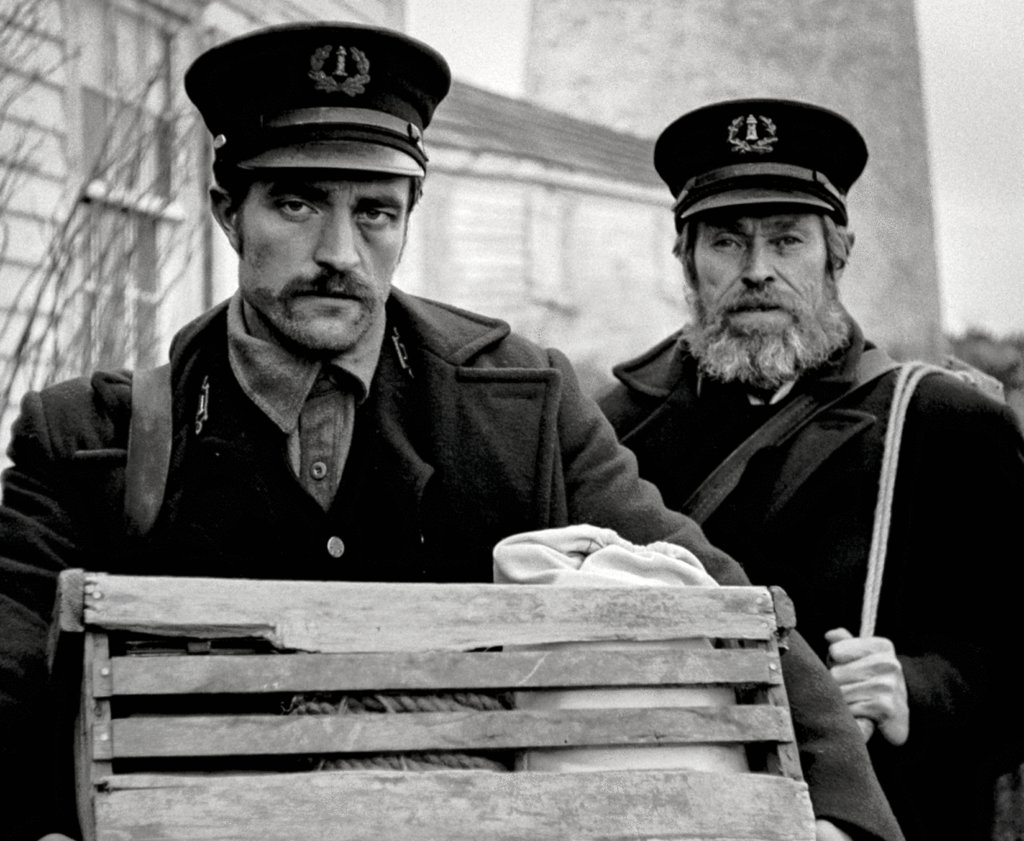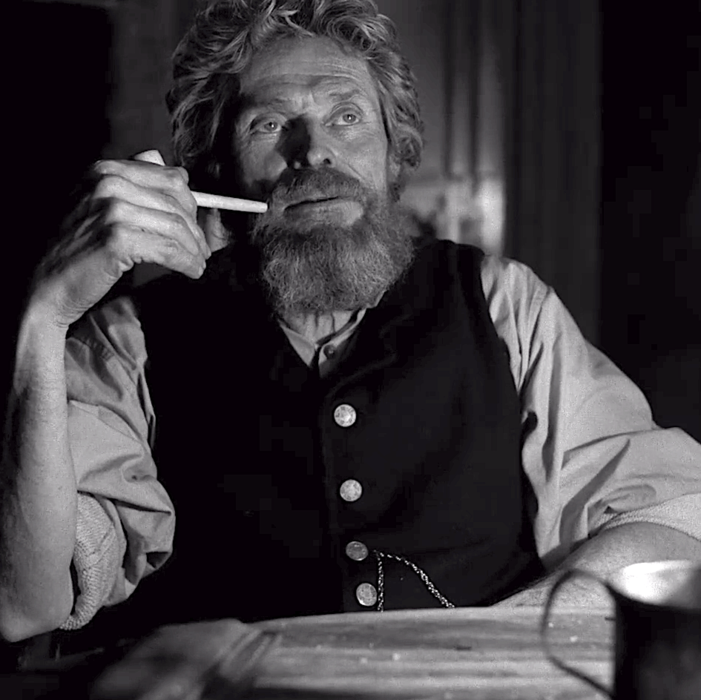The Lighthouse is the best film of last year. Here is something that feels old, timeworn, in many ways, but new in the manner in which those ways interact with one another. It is a confident movie, astonishingly so, and it needed to be. It is ferociously abstract yet unyieldingly entertaining. I appreciated everything about it.
It is the late 19th century. Ephraim Winslow (Robert Pattinson) arrives on an isolated island off the coast of New England to endure a four-week contract under the supervision of grizzled old wickie Thomas Wake (Willem Dafoe). The lodgings are inhospitable and the host is unwelcoming. Wake’s abrasive farts aren’t the only indication that he is a man who has spent too long in his own company.
As Robert Eggers, the co-writer and director of The Lighthouse, has been fond of reminding the press during interviews, “Nothing good can happen when two men are trapped alone in a giant phallus.” The phallus is an important concept here. In a year in which critics and audiences alike praised Martin Scorsese’s The Irishman for its illustration of toxic masculinity, here is a film that is simultaneously saturated by toxic masculinity while also penetrating the concept at its core.
The tension between Winslow and Wake escalates. Wake treats Winslow poorly, forcing increasingly laborious tasks on him and withholding the more interesting duties from him. Crucially, Wake forbids Winslow from attending to the Fresnel lens atop the lighthouse. “I work as hard as any man,” Winslow asserts, in one of many occasions in which he questions Wake’s conduct, though we are never convinced that it is work ethic that Wake is interested in.
Madness is an issue. Lovecraft and Lynch are pronounced inspirations but there are many more. Bergman enthusiasts will no doubt recognise similarities to films such as to Persona and Through a Glass Darkly, visually and thematically. Paranoia, a hallmark of certain forms of madness, is also important. The two men are often seen surreptitiously watching one another. The act of spying can implicate both the one being spied on and the one doing the spying. Eggers exploits the ambiguity of our duel lighthouse keepers in order to keep us guessing as to who, and what, is to be believed.
Two-handers rarely come as electric as The Lighthouse. Winslow and Wake are as well lived in as the creaky lighthouse that they tend to. Pattinson and Dafoe’s performances are not only superior to those of the actors who were recently nominated in the Best Actor category by the Academy this year, each man’s decisions also compliments the other, making both even better. Most films are lucky to have one performance of this caliber.
The Lighthouse is a rare film, not just because it is as good as it is but because there are simply so few films like it. The confidence in execution is staggering, not least because how unorthodox every decision is. It is the sort of film that urges repeat viewings, so enticing is the ambiguity of it all. We are lucky that this film exists.

